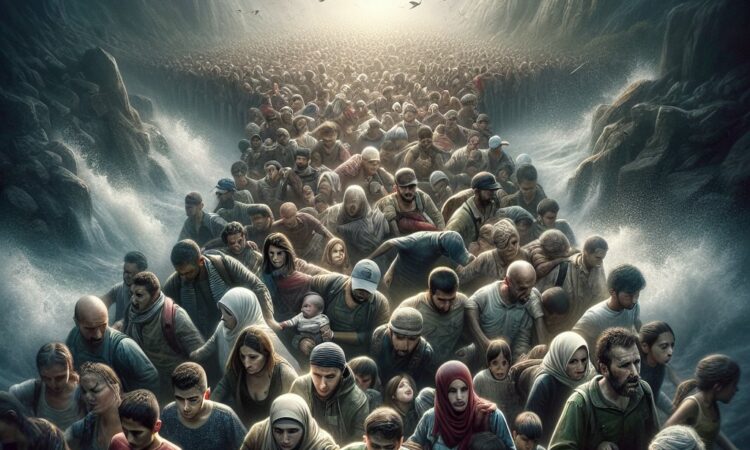Global Migration and Refugee Crisis
The ongoing displacement and movement of people across borders due to conflicts, persecution, poverty, and climate change has created a humanitarian and political crisis of unprecedented scale. Millions of people are fleeing their homes in search of safety and a better life, but they often face dangerous journeys, exploitation, and discrimination in their host countries.
The Causes of Global Migration
There are many factors that contribute to global migration, but some of the most common causes include:
* **Conflict:** Armed conflicts are a major driver of displacement, as people flee violence and instability in their home countries. Syria, for example, has been the source of the largest refugee crisis in the world, with over 11 million people displaced by the ongoing civil war. * **Persecution:** People may also flee their homes because of persecution based on their race, religion, ethnicity, or political beliefs. For example, the Rohingya people of Myanmar have been subjected to widespread violence and discrimination, and hundreds of thousands have fled to neighboring Bangladesh. * **Poverty:** Many people migrate in search of better economic opportunities. This is particularly true in developing countries, where poverty and lack of access to basic necessities can make it difficult to make a living. * **Climate change:** Climate change is also a major driver of displacement, as people are forced to leave their homes due to natural disasters such as floods, droughts, and rising sea levels.
The Impact of the Global Migration Crisis
The global migration crisis has had a profound impact on both sending and receiving countries. In sending countries, the loss of population can have a devastating impact on the economy and social fabric. In receiving countries, the influx of migrants can strain resources and lead to social tensions.
The Challenges of Addressing the Global Migration Crisis
There is no easy solution to the global migration crisis. Addressing the root causes of migration, such as conflict and poverty, is essential, but this is a complex and long-term challenge. In the meantime, there is a need for more effective and humane management of migration flows. This includes providing safe and legal pathways for migration, as well as support for refugees and migrants in their host countries.
What Can We Do to Help?
There are many things that individuals and organizations can do to help address the global migration crisis. Here are a few ideas:
* **Donate to organizations that are working to help refugees and migrants.** Many organizations are providing essential services to refugees and migrants, such as food, shelter, and medical care. Your donation can make a real difference in the lives of people who are struggling. * **Speak out against policies that are harmful to refugees and migrants.** We need to make sure that our governments are taking action to protect the rights of refugees and migrants. Contact your elected officials and let them know your concerns. * **Educate yourself and others about the global migration crisis.** The more we understand about the causes and consequences of migration, the better equipped we will be to find solutions.
Footer

